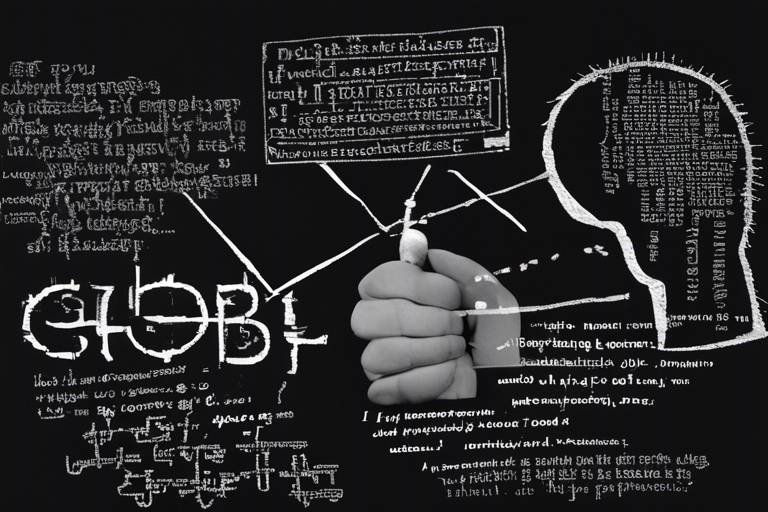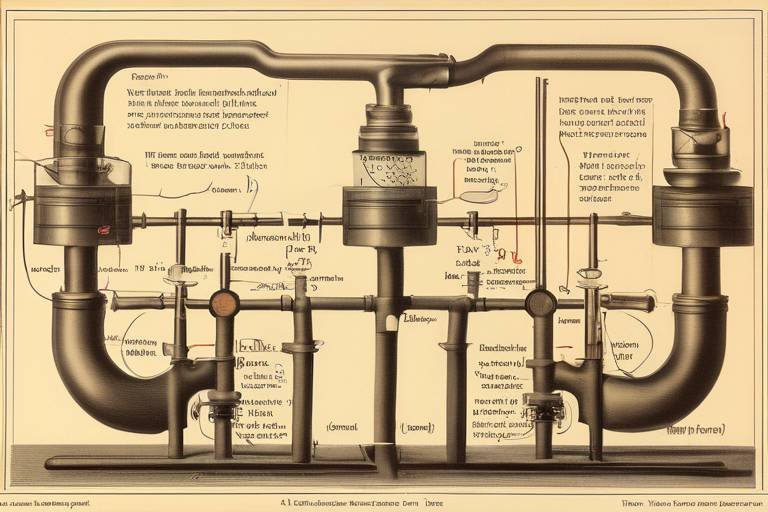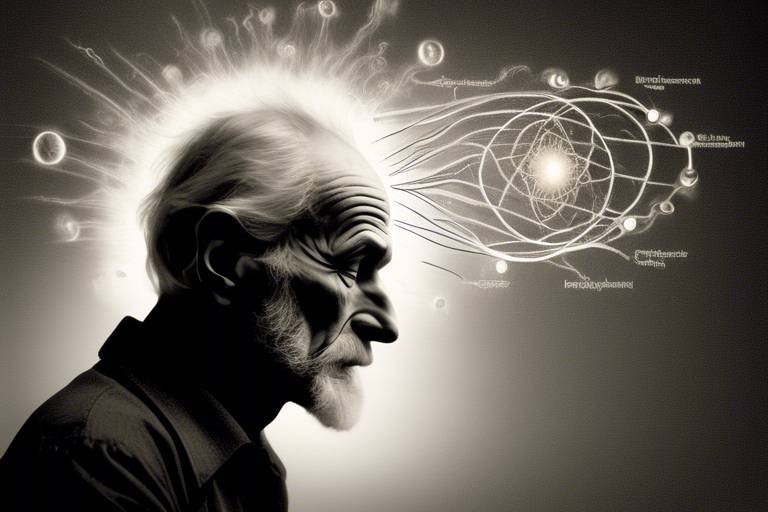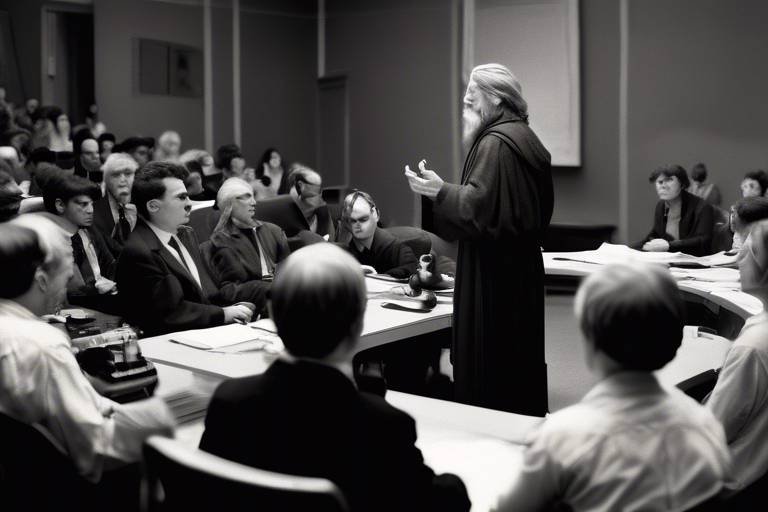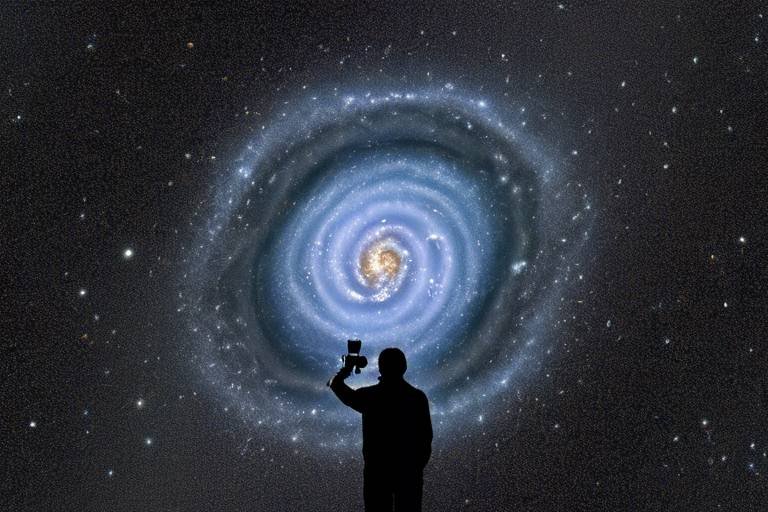Exploration of Space – An Amalgamation of Science and Philosophy
The vastness of space has always sparked a sense of wonder and curiosity within humanity. From the moment we first gazed up at the twinkling stars, we have been driven by an insatiable desire to understand the universe and our place within it. This journey is not merely a scientific endeavor; it is a profound exploration of what it means to exist. As we delve deeper into the cosmos, we uncover not just the mysteries of the universe but also the deeper philosophical questions that arise from our discoveries. What does it mean to be human in an infinite universe? Are we alone in this vast expanse? These questions intertwine science and philosophy, creating a rich tapestry of inquiry that challenges our understanding of existence.
As we embark on this exploration, we must recognize that every technological advancement—be it the launch of a satellite or the landing of a rover on Mars—carries with it implications that extend far beyond the realm of science. Each mission into space serves as a mirror reflecting our desires, fears, and aspirations as a species. The **scientific breakthroughs** we achieve are often accompanied by a **philosophical awakening**, urging us to reconsider our beliefs and values. In this article, we will navigate through the historical context of space exploration, the scientific advancements that have propelled us forward, and the philosophical implications that arise as we reach for the stars.
Throughout history, humanity’s quest for knowledge has been marked by key milestones that have shaped our understanding of the cosmos. From the **early astronomical observations** made by ancient civilizations to the groundbreaking moment when we launched the first artificial satellite, each step has been a testament to our relentless pursuit of knowledge. These achievements not only represent technological progress but also signify a shift in our collective consciousness. With each discovery, we have come closer to answering age-old questions about our existence and the universe around us.
In this exploration, we will also examine the role of **artificial intelligence** in revolutionizing space exploration. AI is not just a tool; it is a partner in our quest to understand the universe. By enhancing data analysis and enabling autonomous navigation, AI paves the way for more efficient missions, allowing us to push the boundaries of what is possible. Imagine a future where robotic missions equipped with AI can conduct complex tasks on distant planets, gathering invaluable data without the need for human presence. This not only expands our reach within the solar system but also raises ethical considerations about the role of humans in space exploration.
As we venture further into the cosmos, we are compelled to confront the **philosophical implications** of our discoveries. The search for extraterrestrial life challenges our understanding of existence and intelligence. What if we are not alone? Such a revelation would not only reshape our understanding of life but also force us to reconsider our place in the universe. Furthermore, exploring the cosmos invites deep existential reflections, encouraging us to ponder our purpose and the interconnectedness of all life. As we stand on the precipice of discovery, we must embrace the uncertainty and wonder that accompanies our journey into the unknown.
- What is the significance of space exploration? Space exploration helps us understand our universe, our origins, and the potential for life beyond Earth.
- How does artificial intelligence contribute to space missions? AI enhances data analysis, improves navigation, and allows robotic missions to perform complex tasks autonomously.
- What are the ethical concerns surrounding human spaceflight? Ethical concerns include the risks to astronauts, psychological effects of long-duration missions, and the implications of colonizing other planets.
- Can we find extraterrestrial life? The search for extraterrestrial life is ongoing, and while we have not yet found definitive proof, the universe's vastness suggests it is a possibility.

The Historical Context of Space Exploration
When we think about space exploration, it's easy to get lost in the grandeur of rockets and distant planets. Yet, the journey to the stars began long before we ever launched a satellite into orbit. The roots of space exploration trace back to ancient civilizations, where early astronomers gazed up at the night sky, charting the movements of celestial bodies. These observations laid the groundwork for our understanding of the cosmos and sparked humanity's enduring curiosity about what lies beyond our blue planet.
Fast forward to the 20th century, a pivotal era that saw the dawn of the Space Age. The launch of Sputnik 1 by the Soviet Union in 1957 marked a monumental milestone, igniting a fierce competition known as the Space Race. This period was characterized by significant achievements, including the first human in space, Yuri Gagarin, in 1961, and the iconic Apollo 11 mission in 1969, which successfully landed Neil Armstrong and Buzz Aldrin on the Moon. These events not only showcased technological prowess but also united humanity in a shared sense of wonder and achievement.
The historical timeline of space exploration can be summarized in the following key milestones:
| Year | Event |
|---|---|
| 1957 | Launch of Sputnik 1 |
| 1961 | Yuri Gagarin becomes the first human in space |
| 1969 | Apollo 11 lands on the Moon |
| 1975 | First International Space Mission (Apollo-Soyuz) |
| 1998 | Launch of the International Space Station (ISS) |
As we navigated through the latter half of the 20th century, the focus of space exploration began to shift. The establishment of the International Space Station in 1998 symbolized a new era of collaboration among nations, as scientists from various countries worked together in the pursuit of knowledge. This cooperative spirit marked a departure from the competitive nature of the earlier Space Race, highlighting the importance of unity in the face of the vast unknown.
Moreover, the advent of robotic missions revolutionized our approach to space exploration. Missions such as the Voyager probes, launched in the late 1970s, provided us with breathtaking images and invaluable data about our solar system. These unmanned spacecraft ventured into the far reaches of space, sending back information that reshaped our understanding of planets, moons, and the very nature of the cosmos.
In conclusion, the historical context of space exploration is a rich tapestry woven from the threads of curiosity, competition, and collaboration. As we stand on the shoulders of giants, it's essential to reflect on the journey that has brought us to this point. The story of space exploration is not just about technological advancements; it's about humanity's relentless quest to understand its place in the universe. With each new discovery, we inch closer to answering the age-old question: are we alone in this vast expanse of stars?

Scientific Advancements in Space Technology
When we think about space exploration, it’s easy to get lost in the sheer vastness of the universe. But, what truly makes our journeys into the cosmos possible are the scientific advancements in space technology that have emerged over the decades. From the early days of rocketry to the sophisticated systems we utilize today, each leap forward has opened new doors to understanding the universe. Can you imagine a time when the thought of launching a human into orbit was a mere dream? Today, thanks to groundbreaking innovations, we are not only launching humans but also sending robotic explorers to the farthest reaches of our solar system.
At the heart of these advancements lies rocket propulsion technology, which has evolved dramatically since the days of the V-2 rocket. The development of multi-stage rockets has enabled us to escape Earth's gravitational pull more efficiently. For example, the Saturn V rocket, which took astronauts to the Moon, utilized a series of stages that jettisoned empty fuel tanks, allowing it to achieve the necessary velocity to break free from Earth. This principle of staging is still in use today, with modern rockets like SpaceX's Falcon Heavy showcasing the incredible potential of reusable rocket technology.
Another significant innovation is in satellite technology. Satellites serve as our eyes in the sky, providing invaluable data for weather forecasting, communication, and even navigation. The launch of the first artificial satellite, Sputnik, in 1957 marked the dawn of the space age. Today, thousands of satellites orbit our planet, each contributing to a vast network that enhances our understanding of Earth and beyond. The evolution of satellite technology has also led to advancements in global positioning systems (GPS), which have transformed how we navigate our world.
But it doesn’t stop there. The role of robotics in space exploration is another game-changer. Robotic spacecraft, like NASA's Mars rovers, have allowed us to explore environments that are inhospitable to humans. These machines are equipped with advanced sensors and tools that can analyze soil samples, capture stunning images, and even conduct experiments in real-time. The ability to send robots to distant planets means we can gather crucial data without risking human lives. It’s like sending a trusted friend to do the dangerous work while we stay safe at home!
As we look to the future, the integration of artificial intelligence (AI) into space technology is set to revolutionize our exploration efforts even further. Imagine spacecraft that can autonomously navigate their way through the cosmos, making decisions based on real-time data. This capability not only increases the efficiency of missions but also enhances our ability to explore areas that were previously considered too risky for human intervention. The combination of AI with robotics could lead to a new era of exploration where we can venture into the depths of space with unprecedented confidence.
In summary, the advancements in space technology are not just about the gadgets and machines we use; they reflect our relentless pursuit of knowledge and understanding. Each innovation builds upon the last, creating a tapestry of progress that propels us further into the unknown. As we continue to push the boundaries of what is possible, one can’t help but wonder: what will the next great leap in space technology look like? Will we finally reach the stars, or perhaps even beyond?
- What is the most significant advancement in space technology?
The development of rocket propulsion systems, particularly multi-stage rockets, has been pivotal in enabling space travel. - How do satellites benefit our daily lives?
Satellites provide essential services like weather forecasting, GPS navigation, and global communications. - What role does AI play in space exploration?
AI enhances data analysis, autonomous navigation, and decision-making, allowing for more complex missions.

The Role of Artificial Intelligence
Artificial Intelligence (AI) is not just a buzzword; it’s a game-changer in the realm of space exploration. Imagine sending a spacecraft millions of miles away, equipped with a brain that can think, learn, and adapt in real-time. That’s the essence of AI in space missions. It’s like having a trusty sidekick that can handle complex calculations while you focus on the bigger picture. With AI, we are not just exploring the cosmos; we are enhancing our capability to do so exponentially.
One of the most significant contributions of AI in space exploration is in the area of data analysis. Space missions generate an overwhelming amount of data, and sifting through it can be like finding a needle in a haystack. AI algorithms can process this vast sea of information, identifying patterns and anomalies that human analysts might miss. This capability is crucial, especially when it comes to analyzing signals from distant planets or interpreting images from space telescopes. It's akin to having a superhuman assistant that can read hundreds of books in seconds, extracting the most relevant information for us.
Moreover, AI plays a pivotal role in autonomous navigation. Spacecraft, especially those venturing to distant planets, need to navigate through unpredictable environments. Traditional navigation methods can be slow and cumbersome, relying heavily on real-time communication with Earth. However, with AI, spacecraft can make decisions on the fly, adjusting their course based on immediate data. This autonomy is not just a luxury; it’s a necessity for missions that may take years to reach their destinations. For instance, the Mars rovers utilize AI to navigate the Martian terrain, avoiding obstacles and selecting optimal paths without waiting for instructions from Earth.
In addition, AI enhances decision-making processes during missions. It can evaluate various scenarios and outcomes, helping mission control make informed choices quickly. This capability is especially vital in emergency situations where every second counts. Imagine a spacecraft encountering a sudden solar storm; AI can assess the risk and suggest immediate actions, potentially saving the mission and the equipment on board.
To illustrate the impact of AI, consider the following table that summarizes its roles in space exploration:
| AI Application | Description |
|---|---|
| Data Analysis | Processes vast amounts of data to identify patterns and anomalies. |
| Autonomous Navigation | Allows spacecraft to navigate and make decisions without real-time communication. |
| Decision-Making | Evaluates scenarios quickly to aid mission control in critical situations. |
In conclusion, the role of AI in space exploration is nothing short of revolutionary. Its ability to analyze data, navigate autonomously, and aid in decision-making not only enhances our exploration capabilities but also opens up new frontiers in understanding the universe. As we continue to push the boundaries of what is possible, AI will undoubtedly be at the forefront, guiding us through the cosmos and helping us uncover the mysteries that lie beyond our planet.
- How does AI help in space exploration? AI assists in data analysis, autonomous navigation, and decision-making, enhancing the efficiency of space missions.
- What are some examples of AI in space missions? AI is used in Mars rovers for navigation and in telescopes for data analysis.
- Can AI operate spacecraft without human intervention? Yes, AI can make real-time decisions, allowing spacecraft to operate autonomously in challenging environments.

AI in Robotic Missions
Artificial Intelligence (AI) is not just a buzzword; it’s a game-changer in the field of space exploration, especially when it comes to robotic missions. Imagine sending a robot to another planet, one that can think and adapt to its surroundings. This is no longer the stuff of science fiction; it's the reality we are building today. AI allows these robotic explorers to perform complex tasks that would be impossible for humans to execute, especially in environments that are hostile or inaccessible.
Robotic missions equipped with AI can autonomously navigate through treacherous terrains, analyze samples, and even make real-time decisions based on the data they collect. For instance, consider the Mars rovers, such as Curiosity and Perseverance. These rovers are equipped with advanced AI systems that enable them to:
- Identify interesting geological features for closer examination
- Adjust their paths to avoid obstacles
- Conduct scientific experiments without waiting for commands from Earth
This level of autonomy is crucial because of the vast distances involved in space exploration. Commands sent from Earth can take several minutes to hours to reach a spacecraft, making real-time control impractical. With AI, these robotic missions can operate independently, ensuring that valuable time is not wasted. This capability not only enhances the efficiency of missions but also significantly increases the amount of data that can be collected during a single expedition.
Furthermore, AI's ability to process vast amounts of data in real-time allows these robotic explorers to learn from their surroundings. Imagine a robot on Mars that can analyze soil samples, detect signs of water, and even assess the planet's atmosphere—all while adapting its mission parameters based on the findings. This adaptability opens up new frontiers in our understanding of other celestial bodies and their potential for supporting life.
Ultimately, the integration of AI in robotic missions represents a significant leap forward in our quest to explore the cosmos. As these technologies continue to evolve, we can expect even more groundbreaking discoveries that will not only expand our knowledge of the universe but also challenge our perceptions of life and existence itself.
In conclusion, AI in robotic missions is not just about sending machines into space; it’s about enhancing our ability to explore, understand, and ultimately connect with the universe in ways we never thought possible. The future of space exploration is bright, and with AI at the helm, the sky is no longer the limit.
- What role does AI play in space exploration?
AI enhances the capabilities of robotic missions by enabling autonomous navigation, data analysis, and real-time decision-making. - How do robotic missions benefit from AI?
AI allows rovers and other robotic explorers to operate independently, adapt to their environment, and conduct complex scientific tasks without direct human intervention. - Can AI help in the search for extraterrestrial life?
Yes, AI can analyze data from various sources more efficiently, helping scientists identify potential signs of life on other planets.

AI and Data Analysis
In the realm of space exploration, the volume of data generated is nothing short of astronomical. With each mission, satellites and rovers collect terabytes of information, ranging from atmospheric readings to geological formations on distant planets. Artificial Intelligence (AI) has emerged as a game-changer in the field of data analysis, transforming how scientists interpret this deluge of information. Imagine trying to find a needle in a haystack; now, picture that haystack being the size of a galaxy! This is where AI steps in, acting as a sophisticated tool that can sift through massive datasets and identify patterns that would otherwise go unnoticed.
One of the most significant advantages of AI in data analysis is its ability to enhance efficiency. Traditional methods of data analysis often involve labor-intensive processes that can take weeks or even months. However, AI algorithms can process and analyze data in a fraction of the time, allowing scientists to make quicker decisions and draw insights more rapidly. For instance, NASA's Mars rover, Perseverance, utilizes AI to analyze soil samples and determine which ones are most likely to contain signs of past life. This capability not only accelerates the research process but also increases the chances of significant discoveries.
Moreover, AI systems are adept at learning from the data they analyze. This machine learning component means that the more data these systems process, the better they become at identifying trends and anomalies. For example, AI can be trained to recognize specific geological features or chemical signatures that indicate the presence of water or organic material. As a result, researchers can refine their hypotheses and focus their efforts on the most promising areas of study, maximizing the scientific yield from each mission.
To illustrate the impact of AI on data analysis in space exploration, consider the following table:
| AI Application | Benefit | Example |
|---|---|---|
| Pattern Recognition | Identifies significant features in data | Detecting water ice on Mars |
| Predictive Analytics | Forecasts future conditions based on historical data | Weather predictions for planetary atmospheres |
| Automated Data Processing | Reduces time and labor in data analysis | Real-time analysis of satellite imagery |
In addition to these applications, AI also plays a crucial role in collaborative research. By sharing data across various missions and institutions, AI systems can aggregate and analyze information on a global scale. This interconnected approach fosters a more comprehensive understanding of the universe and enables scientists to build on each other's findings. For example, data from the Kepler Space Telescope, which has searched for exoplanets, can be combined with information from other missions to enhance our knowledge of planetary systems.
As we look to the future of space exploration, the integration of AI in data analysis will undoubtedly continue to evolve. The potential for breakthroughs in our understanding of the cosmos is immense, and AI will be at the forefront of this journey. The synergy between human ingenuity and artificial intelligence could very well unlock the mysteries of the universe, guiding us toward new frontiers of knowledge and discovery.
- How does AI improve data analysis in space exploration? AI enhances efficiency, identifies patterns, and automates data processing, allowing for quicker and more accurate insights.
- What are some examples of AI applications in space missions? AI is used for pattern recognition, predictive analytics, and automated data processing in missions like Mars rovers and satellite imagery analysis.
- Can AI help in the search for extraterrestrial life? Yes, AI can analyze data from various missions to identify signs of life and enhance our understanding of potential habitable environments.

Human Spaceflight: Challenges and Ethics
When we think about human spaceflight, it's easy to get caught up in the excitement of exploration and discovery. However, beneath that thrilling surface lies a complex web of challenges and ethical dilemmas that we must confront. First off, let’s talk about the risks involved. Space is an unforgiving environment, and sending humans into it means exposing them to a range of dangers, from radiation to microgravity effects on the body. Astronauts face potential health issues such as muscle atrophy and bone density loss, which can have long-lasting consequences.
Moreover, the psychological challenges of long-duration missions cannot be overlooked. Imagine being cooped up in a small spacecraft with a handful of people for months on end. The stress of confinement, coupled with the isolation from Earth, can lead to significant mental health issues. Astronauts must possess not only physical resilience but also strong psychological fortitude to cope with the challenges of space travel. This brings us to the ethical implications of selecting candidates for these missions. Should we prioritize physical health, psychological stability, or perhaps even the ability to work well in a team?
Another critical ethical consideration is the morality of colonizing other planets. As we look toward Mars and beyond, we must ask ourselves: Are we prepared to impose our presence on other worlds? The idea of colonization raises questions about the potential impact on any existing ecosystems and the rights of potential extraterrestrial life forms. Just as we strive to protect endangered species on Earth, should we not extend the same consideration to other planets? The interconnectedness of life in the universe is a concept that challenges our traditional views and forces us to reevaluate our responsibilities as explorers.
To further illustrate these challenges and ethical considerations, consider the following table that outlines some of the major risks and ethical dilemmas associated with human spaceflight:
| Challenges | Ethical Considerations |
|---|---|
| Health Risks (radiation, muscle atrophy) | Candidate Selection Criteria |
| Psycho-social Stress (isolation, confinement) | Impact on Potential Ecosystems |
| Technical Failures (equipment malfunction) | Responsibility for Extraterrestrial Life |
In conclusion, while the allure of human spaceflight is undeniable, it is crucial to approach this frontier with a clear understanding of the challenges and ethical implications involved. As we venture further into the cosmos, let’s ensure that we do so with a sense of responsibility and a commitment to the principles of ethical exploration. After all, the question isn’t just about whether we can go to space, but rather whether we should.
- What are the main health risks associated with long-duration space missions?
Health risks include radiation exposure, muscle atrophy, bone density loss, and psychological stress from isolation. - How do astronauts cope with the psychological challenges of space travel?
Astronauts undergo extensive training and are selected based on their psychological resilience and ability to work in teams. - What ethical considerations arise from the colonization of other planets?
Ethical considerations include the potential impact on existing ecosystems and the rights of any extraterrestrial life forms.

Philosophical Implications of Space Exploration
Space exploration is not just about rockets and satellites; it’s a profound journey that challenges our understanding of existence itself. As we look up at the stars, we can’t help but ponder our place in the universe. Are we merely a speck of dust in an infinite cosmos, or do we hold a significant role in the grand scheme of things? These questions are not just scientific; they are deeply philosophical. The exploration of space compels us to confront age-old questions about consciousness, existence, and the potential for life beyond Earth.
One of the most tantalizing aspects of space exploration is the search for extraterrestrial life. This quest pushes us to redefine what we consider "life" and "intelligence." Imagine if we discovered microbial life on Mars or intelligent beings on a distant exoplanet. What would that mean for humanity? Would it challenge our self-perception as the pinnacle of evolution? The implications are staggering. As we explore the cosmos, we must grapple with the idea that we are not alone, which could profoundly alter our understanding of ourselves and our place in the universe.
Moreover, the very act of exploring space invites us to engage in existential reflections. What is our purpose? Why do we strive to reach for the stars? These questions echo through the ages, and space exploration gives them a new context. As we send probes into the depths of the solar system and beyond, we are not just seeking knowledge; we are searching for meaning. The vastness of space can evoke feelings of insignificance, yet it also inspires a sense of wonder and interconnectedness. We are all part of this cosmic tapestry, and our actions resonate throughout the universe.
As we venture further into the unknown, we must also consider the ethical implications of our explorations. The idea of colonizing other planets raises significant moral questions. Should we impose our existence on a pristine world? What rights would such a world hold? The potential for human expansion into the cosmos must be weighed against the responsibility we have to protect and preserve the environments we encounter. These ethical dilemmas challenge us to think critically about our actions and their consequences on a universal scale.
In conclusion, the philosophical implications of space exploration extend far beyond the technical achievements of launching spacecraft. They invite us into a dialogue about our identity, our responsibilities, and our aspirations as a species. As we continue to explore the final frontier, we must remain mindful of the profound questions that arise and the impact they have on our understanding of existence. The cosmos is not just a destination; it is a mirror reflecting our deepest thoughts and beliefs about life itself.
- What is the significance of searching for extraterrestrial life? The search for extraterrestrial life challenges our understanding of life and intelligence, prompting us to rethink our place in the universe.
- How does space exploration affect our understanding of existence? It invites deep existential reflections, encouraging us to consider our purpose and the interconnectedness of all life.
- What ethical considerations arise from colonizing other planets? We must consider the moral implications of our actions and the responsibility we have to protect other environments.

The Search for Extraterrestrial Life
The quest for extraterrestrial life is one of humanity's most profound endeavors, igniting our imagination and challenging our understanding of existence. Imagine gazing up at the starry night sky, pondering whether we are alone in this vast universe. The search for life beyond Earth isn't just about finding little green men; it's about understanding the very essence of life itself. What does it mean to be alive? And how do we define intelligence? These questions fuel our curiosity and drive scientific exploration.
As we delve deeper into the cosmos, we employ various methods to search for extraterrestrial life. From sending robotic probes to Mars to analyzing the atmospheres of distant exoplanets, scientists are utilizing cutting-edge technology to gather data. For instance, telescopes like the James Webb Space Telescope are designed to detect the chemical signatures of life, such as oxygen and methane, in the atmospheres of planets orbiting other stars. These discoveries could potentially reshape our understanding of biology and the conditions necessary for life to thrive.
Moreover, the search for extraterrestrial life raises intriguing philosophical debates. Consider this: if we were to discover microbial life on Mars or the complex ecosystems of distant exoplanets, what would that mean for humanity? Would it diminish our significance in the universe, or would it expand our understanding of life's diversity? This existential reflection compels us to reevaluate our place in the cosmos and our responsibilities as stewards of our own planet.
To further illustrate the significance of the search for extraterrestrial life, let’s take a look at some key missions and their objectives:
| Mission | Objective | Launch Year |
|---|---|---|
| Mars Rover Perseverance | Search for signs of past life and collect samples for future return to Earth. | 2020 |
| Kepler Space Telescope | Identify Earth-like planets in the habitable zone of other stars. | 2009 |
| Europa Clipper | Investigate the icy moon Europa for potential subsurface oceans and signs of life. | 2024 (planned) |
These missions exemplify humanity's relentless pursuit of knowledge and the hope that we are not alone. As we continue to explore, we are not just looking for life; we are searching for answers to our most profound questions. The possibility of discovering extraterrestrial life challenges our assumptions and encourages us to think outside the box. What if life exists in forms we cannot even conceive? This notion invites a sense of humility and wonder, reminding us that the universe is far more complex than we can imagine.
In conclusion, the search for extraterrestrial life is not merely a scientific endeavor; it is a philosophical journey that invites us to explore the very fabric of existence. It challenges us to consider our role in the universe and the implications of our discoveries. As we push the boundaries of our knowledge, we may find that the answers we seek are not just about life beyond Earth, but about the essence of life itself and our place within the cosmic tapestry.
- What is the primary goal of the search for extraterrestrial life? The primary goal is to find evidence of life beyond Earth and understand the conditions that support life in the universe.
- How do scientists detect potential signs of life on other planets? Scientists use telescopes and space probes to analyze the atmospheres of exoplanets for chemical signatures associated with life, such as oxygen and methane.
- What implications would discovering extraterrestrial life have on humanity? It could reshape our understanding of life, intelligence, and our role in the universe, potentially leading to profound philosophical and ethical discussions.

Existential Reflections on the Universe
As we gaze into the vastness of space, we are often struck by a profound sense of wonder and insignificance. The universe, with its billions of galaxies, each containing millions or even billions of stars, serves as a humbling reminder of our place in the grand cosmic scheme. This contemplation leads us to ponder some of life's most fundamental questions: What is our purpose? Are we alone in this vast expanse? What does it mean to exist?
These existential reflections are not merely philosophical musings; they are deeply intertwined with our understanding of science and the universe. For instance, the more we learn about the cosmos through space exploration, the more we are compelled to reconsider our definitions of life and intelligence. The possibility of extraterrestrial life forces us to confront our assumptions about what it means to be "alive." Could life exist in forms we have yet to imagine, thriving in environments that seem inhospitable to us? This is a question that not only challenges our scientific knowledge but also our philosophical frameworks.
Moreover, the exploration of space invites us to reflect on the interconnectedness of all life. Consider the fact that the elements that make up our bodies were forged in the hearts of stars. This cosmic connection suggests that we are not separate from the universe; rather, we are a part of it, intricately woven into the fabric of existence. As we ponder our origins, we might also ask ourselves: What responsibilities do we hold towards our planet and potential other worlds?
In this light, the ethical implications of space exploration become increasingly significant. Are we prepared to treat other worlds with the same respect we hope to receive from them? As we venture further into the cosmos, we must grapple with the moral questions surrounding colonization and the potential exploitation of other planets. Just as we reflect on our actions on Earth, we must consider how our presence in space will impact the universe as a whole.
Ultimately, the quest to understand the universe is not just about scientific discovery; it is about seeking answers to questions that define our very existence. Each mission to Mars, each probe sent to the outer reaches of our solar system, invites us to engage in a dialogue with the cosmos. In this dialogue, we may find not only the answers we seek but also a deeper understanding of ourselves, our purpose, and our place in this magnificent universe.
- What is the significance of exploring space? Exploring space helps us understand our universe, our origins, and our place within it, while also advancing technology and science.
- Are there ethical considerations in space exploration? Yes, ethical considerations include the potential impact on other worlds, the treatment of extraterrestrial life, and the responsibilities we hold towards our own planet.
- How does space exploration affect our understanding of existence? Space exploration challenges our perceptions of life, intelligence, and our interconnectedness with the universe, prompting deeper existential reflections.
Frequently Asked Questions
- What are the key milestones in the history of space exploration?
Space exploration has a rich history, starting from early astronomical observations by ancient civilizations to the launch of the first artificial satellites in the mid-20th century. Key milestones include the launch of Sputnik 1 in 1957, the first human in space, Yuri Gagarin, in 1961, and the Apollo moon landings in the late 1960s and early 1970s. Each of these events marked significant advancements in our understanding of the cosmos and our capabilities in exploring it.
- How has technology advanced space exploration?
Technological innovations have played a crucial role in advancing space exploration. Developments in rocket propulsion have allowed us to reach further into space, while satellite technology has transformed communication and data collection. Robotics has enabled missions to distant planets, allowing us to explore environments that are too dangerous for humans. These advancements collectively enhance our ability to study and understand the universe.
- What is the role of artificial intelligence in space exploration?
Artificial intelligence is revolutionizing space exploration by improving data analysis, autonomous navigation, and decision-making processes. AI systems can process vast amounts of data collected from missions, helping scientists identify patterns and make discoveries. Moreover, AI-equipped robotic missions can perform complex tasks on other planets, gathering valuable data without the need for human presence, thus expanding our reach in the solar system.
- What ethical considerations are associated with human spaceflight?
Human spaceflight presents various ethical challenges, including the risks faced by astronauts during missions and the psychological effects of long-duration space travel. There are also moral implications regarding the colonization of other planets and the potential impact on any existing ecosystems. These considerations prompt us to reflect on the responsibilities we hold as we venture into the cosmos.
- What philosophical questions does space exploration raise?
Space exploration invites profound philosophical questions about humanity's place in the universe, the nature of consciousness, and the possibility of extraterrestrial life. It encourages us to think about our purpose and the significance of our actions, as well as the interconnectedness of all life. The search for extraterrestrial life challenges our understanding of intelligence and existence, sparking debates that can reshape our worldview.
- How does exploring the cosmos affect our understanding of existence?
Exploring the cosmos prompts deep existential reflections. It challenges us to consider our purpose and the broader implications of our actions on Earth and beyond. The vastness of the universe and the potential for life elsewhere can lead us to rethink what it means to exist and our role within this grand tapestry of life. This exploration fosters a sense of connection among all living beings, urging us to appreciate our place in the universe.





